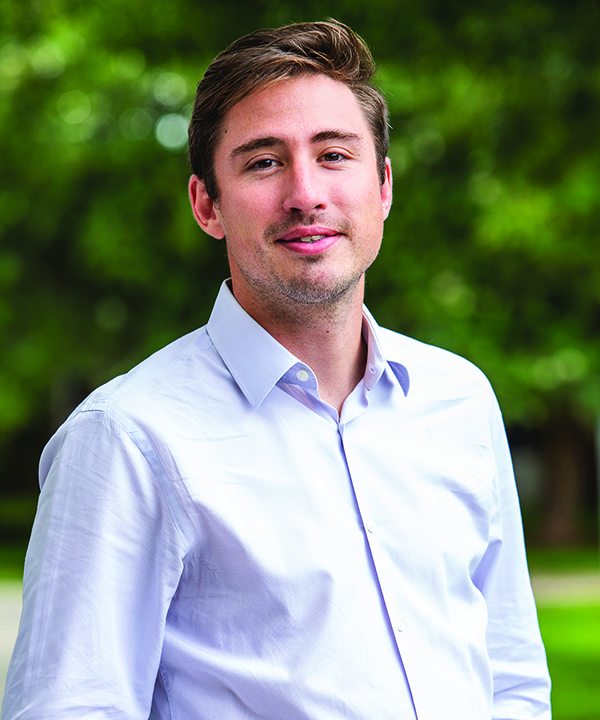
Nature’s diverse structures, processes, and adaptations provide a limitless source of inspiration for materials scientists and engineers. For Guilhem De Hoe, Ph.D., who joined the Department of Materials Science & Engineering as an assistant professor in January 2024, crystals provided the first sparks of curiosity.
“I think at the time, I envisioned I would be a geologist or something similar,” De Hoe said. “When I later realized that there is so much diversity in the properties of natural materials, my interest became more ‘organic’ focused. For instance, butterfly wings with a structure that generates color, the anti-biofouling nature of shark skin, and desert beetles whose backs condense water from the air were fascinating to me.”
He didn’t know it then, but De Hoe’s early fascination with crystals and their formation had already set his career in motion.
De Hoe’s family emigrated from Europe when he was young and settled in California. During high school, he developed a fondness for chemistry, leading to a doctorate from the University of Minnesota.
“Though my Ph.D. is in chemistry, during my last two years as an undergrad, I became interested in polymer science and engineering,” he said. “That focus grew even more during graduate school and my two post-doc appointments.
“From a research perspective, I am most passionate about polymers and their so-called ‘end-of-life,’ including experiments on the processing and recycling of plastics and their biodegradation in different environments.”
De Hoe feels that there is tremendous potential in designing approaches to better circularize plastics and mitigate negative environmental impacts. However, practical challenges in reprocessing plastic waste, as well as knowledge gaps and misunderstandings in the biodegradation of plastics, are hampering progress.
“As a scientist, I’m here to help in both of those areas,” he said.
As an educator, De Hoe has equally worthy intentions.
“Ultimately, my goal is to help students develop into great scientists and engineers and get them into the careers they want,” De Hoe said. “Along the way, I also want to establish a unique research portfolio that contributes to UF’s reputation for excellence in polymer science and engineering. It would be very validating to me if my work informs decisions made in industry regarding which products to pursue and in government regarding which policies to enact.”
